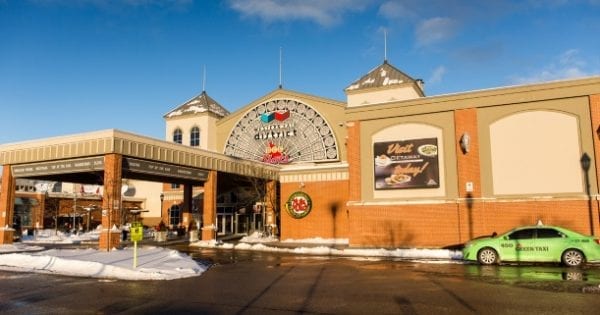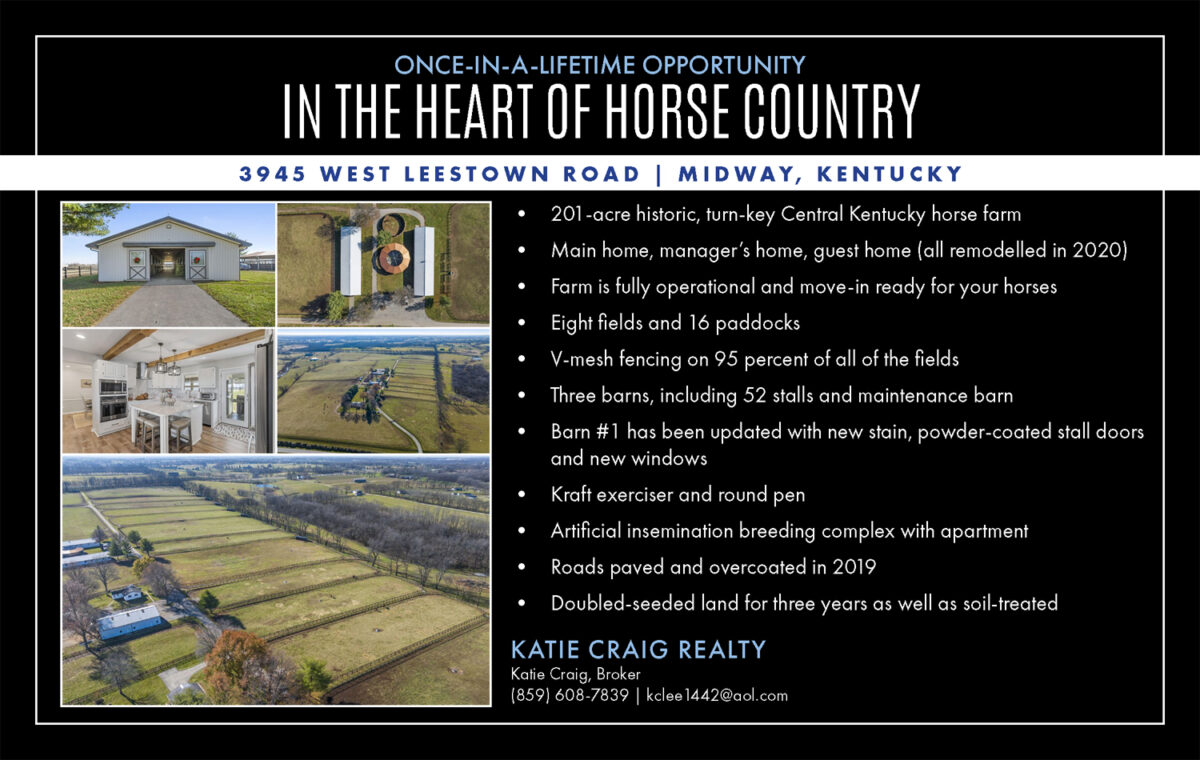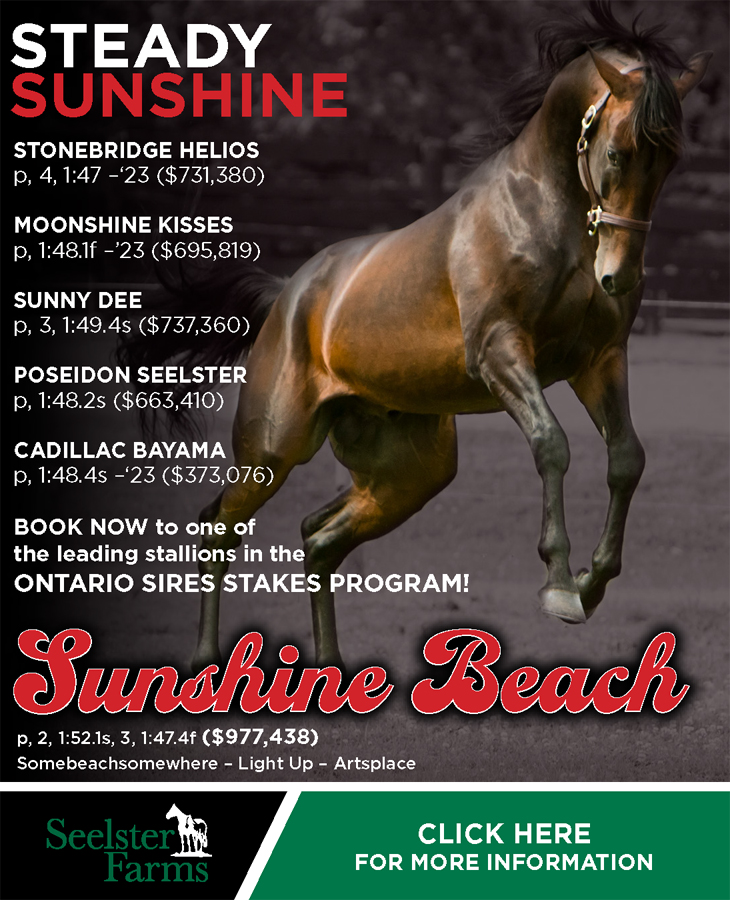

Dangerous precedent possible in Ontario?
As Gateway Casino and Entertainment tries to reduce the lease amount it pays to The Raceway at The Western Fair District, track CEO Hugh Mitchell said racing can ill afford a cut, particularly with the likelihood other casinos will try to follow Gateway’s lead at other tracks in the province.
by Dave Briggs
Hugh Mitchell admits there’s a lot of pressure to get negotiations with Gateway Casinos and Entertainment Ltd right because any decision allowing the company to decrease what it is obligated to pay The Raceway at The Western Fair District in London, ON in annual lease payments could provide a damaging precedent for Ontario’s horse racing industry.
“It’s a lot of pressure because… what happens in London will be a springboard for what happens at other tracks. Hopefully, it’s good news, at the end of the day,” said Mitchell the CEO of the Western Fair District referring to negotiations happening between Gateway, the city of London and Western Fair.
Last week, Gateway announced in order to expand the casino and possibly build a hotel it would need to either decrease the $6 million its obligated to pay to Western Fair annually through 2020 or purchase land from the association on which to expand the casino. Gateway has threatened that if either of those two requests is denied, it will pursue leaving the Western Fair site and building a casino somewhere else in the London area, leaving racing completely out of luck.
Despite the fact the company knew it had the lease obligations when it bid on the casino contract, a Gateway company spokesperson was quoted in the London Free Press this week as saying the company does not wish to subsidize horse racing because it bid on running a casino, not a racetrack.
“They came into it with their eyes wide open,” Mitchell said. “They knew exactly what the lease was.”
Mitchell said Gateway is entitled to negotiate to try to reduce the lease payments — “I get where they are coming from and there’s no animosity towards them, or anybody else for that matter,” he said — but the track doesn’t have much left to give.
“I don’t know how racing can take a haircut,” Mitchell said, adding the industry already took a huge hit when the Slots at Racetracks Program (SARP) was cancelled in 2013. “There are no soles on these shoes anymore. This business is skinny, terribly skinny, and it needs to go up not down. I don’t think there’s any more give in horse racing at all.
“We’ve shrunk. You just have to look at purses. That’s the engine in our business, as you well know. They are at the lowest they can be. They cannot be any lower. People will start to ask the question why, why bother? So those purses at our place need to be up to $85,000. We’re at $65,000 or so now, so there’s no room in my view to shrink purse structure in Ontario at all.”
How did we get here?
The Ontario Lottery and Gaming corporation (OLG), as part of its gaming modernization strategy, has been turning over the operation of racetrack gaming parlors to casino companies to run. The OLG divided the province into sectors and, in May, Gateway won the bid to operate the Southwest Gaming Bundle for 20 years. That bundle includes The Raceway at The Western Fair District, along with slot operations at Clinton Raceway, Dresden Raceway, Hanover Raceway, the now defunct Woodstock Raceway and Casino Point Edward near Sarnia.
The lease arrangements tracks have with the OLG effectively replaced the direct revenue the horse racing industry once received from SARP.
“After lots of negotiations between racetracks across the province and the OLG on Slots At Racetrack leases, the OLG and racetracks collectively came to an understanding that the leases would require that association to continue to operate live racing, which is not a difficult commitment to make. Inside of the lease, there was financial consideration for the lease to pay for infrastructure, overhead, capital improvements related to racing. So, that number, that lease number, includes financial considerations to support live racing,” Mitchell said.
“Gateway wants to renegotiate the lease and they can’t do so until 2020,” Mitchell said, “but the urgency is them wanting to, or really having to, frankly, expand and get their gross gaming revenues up to the level that they had committed to the government on because, essentially, they had bid on paying the government so much money out of the gaming license and they’ve got some commitments to government. Understandably so, they are anxious to get on with their expansion so they can generate the revenues they’ve promised, and committed to, the government.”
Mitchell dismissed the option of selling Gateway land for an expansion because that would end the lease arrangement and cut racing off from that funding. He said moving the casino somewhere else in the city appears to be a tall order for Gateway.
“On the issue of relocating, first would be the issue of zoning. Our site has the only gaming zoning in the municipality. So, if they were going to try to move, they would have to get council approval to have another site re-zoned. They would also require OLG approval before they could relocate and they would also require Minister of Finance approval. Those are three hills they need to climb, if they want to move,” Mitchell said.
That, essentially, leaves a reduction in the lease as the most probable option for Gateway, something that’s not tenable for The Raceway.
“The fact of the matter is that we, nor any other track for that matter, can’t continue to support racing if that lease payment is 15 or 20 cents on the dollar. If it’s a pure commercial lease, it doesn’t provide the kind of funding to support live racing. I would go so far as to say that of any track,” Mitchell said.
That said, Mitchell is happy to continue negotiations.
“I am hopeful that we can be creative at our site and have expanded gaming and create a win for Gateway, a win for ourselves and racing. I include racing when I say ‘ourselves’. This isn’t about creating a win for Western Fair and then dissolving our interests in horse racing. For us, it’s Western Fair and horse racing and we’re inextricably linked,” Mitchell said. “The other win, obviously, is the city. They are co-owners in some of the property, so they have a vested interest in this outcome. They have been great partners and we’ve had lots of good discussions with them about it. I think we all want it, but we just want to make sure that it’s not at the expense of another party. I’m adamant that it ought not to be at the expense of horse racing.”
Mitchell said it is a shame horsepeople are not at the negotiating table.
“The unfortunate part for horsepeople is that they are out there, and it’s out of their control. That’s really disconcerting for them and I can appreciate that. They are sitting there, questioning whether they are going to continue to have a livelihood, wondering if they should continue to reinvest, buy yearlings and buy farms and continue on. I wish I had answers for them, but I can only say that we will do our level best to continue to support racing. We do it because it’s part of our mission and mandate. I think if you look back in the legislation around Agricultural Societies, I think horse racing is intrinsic in that mandate and mission.”
Mitchell then called himself an eternal optimist and said he believes a reasonable solution can be reached. At the same time, Mitchell is front and center as chair of Ontario Racing in discussions with the government to formalize long-term funding for the industry that has long been promised.
“The government, at some point in time during our negotiations for long-term funding, is going to have to give us a signal on whether they are going to continue to support live racing through leases,” Mitchell said.















